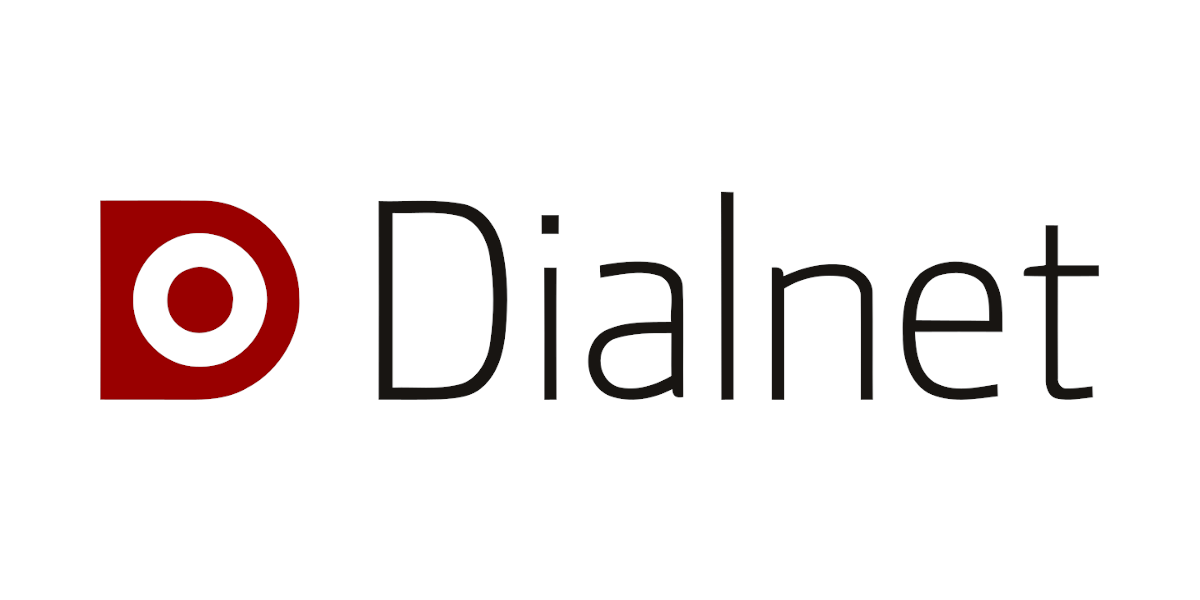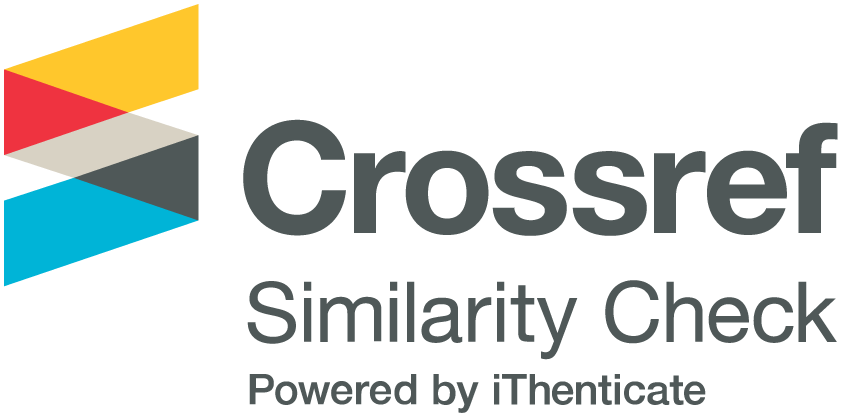La calidad de las instituciones y su relación con la economía: una revisión de las bases conceptuales y estudios empíricos
Debate: La calidad de las instituciones. Una perspectiva interdisciplinar
DOI:
https://doi.org/10.54790/rccs.38Palabras clave:
calidad institucional, economía, organizaciones, instituciones, desarrollo económico, cultura organizacionalResumen
La fragilidad o fortaleza de algunas economías para afrontar las crisis económicas puede ser explicada en gran medida por la calidad de las instituciones. Las instituciones desempeñan un papel fundamental en la configuración de la sociedad y la economía. A través de los actores políticos y sociales, los agentes económicos y los órganos judiciales, entre otros, se construye un marco regulatorio e institucional con capacidad para moldear el sistema económico en cuestiones como la estabilidad, la equidad y la protección de los derechos individuales. Este artículo aborda la situación actual de los estudios sobre calidad institucional en el campo de las ciencias económicas. Se presentan los fundamentos teóricos y las metodologías que respaldan los principales enfoques, así como resultados de varios estudios empíricos relevantes, junto a estudios específicos para el entorno español y sus implicaciones. En las conclusiones se destacan las contribuciones, fortalezas y debilidades, y se sugieren posibilidades de mejora acudiendo a la integración de conceptos y métodos procedentes de varias disciplinas.
Descargas
Métricas
Citas
Acemoglu, D., Johnson, S. y Robinson, J. A. (2001). The Colonial Origins of Comparative Development: An Empirical Investigation. American Economic Review, 91(5), 1369-1401. https://doi.org/10.1257/aer.91.5.1369
Acemoglu, D., Johnson, S. y Robinson, J. A. (2002). Reversal of Fortune: Geography and Institutions in the Making of the Modern World Income Distribution. The Quarterly Journal of Economics, 117(4), 1231-1294. https://doi.org/10.1162/003355302320935025
Acemoglu, D. y Robinson, J. (2012). Why nations fail. The origins of power, prosperity and poverty. New York: Crown Business. https://doi.org/10.1355/ae29-2j
Álvarez González, L. J., Gadea Rivas, M. D. y Gómez Loscos, A. (2021). La evolución cíclica de la economía española en el contexto europeo. Madrid: Banco de España. Documentos Ocasionales, 2103. https://repositorio.bde.es/bitstream/123456789/14752/1/do2103.pdf
Aoki, M. (2007). Endogenizing institutions and institutional change. Journal of Institutional Economics, 3(1), 1-31. https://doi.org/10.1017/S1744137406000531
Arias, X. C. (2021). Economía española: Las instituciones importan. Papeles de Economía Española, 168, 2-189.
Baldwin, R. y Cave, M. (2012). Understanding regulation: Theory, strategy, and practice. Oxford: Oxford University Press. https://doi.org/10.1093/acprof:osobl/9780199576081.001.0001
Borrell, J. R., García Galindo, C. y Jiménez, J. L. (2021). La cara amable y el lado oscuro de las reformas de las autoridades de competencia. Papeles de Economía Española, 168, 78-87.
Buccirossi, P., Ciari, L., Duso, T., Spagnolo, G. y Vitale, C. (2013). Competition policy and productivity growth: An empirical assessment. Review of Economics and Statistics, 95(4), 1324-1336. https://doi.org/10.1162/REST_a_00304
Buchanan, J. M. y Tullock, G. (1962). The Calculus of Consent: Logical Foundations of Constitutional Democracy. Ann Harbor: University of Michigan Press.
Burki, S. J. y Perry, G. (1998). Más allá del Consenso de Washington: la hora de la reforma institucional. Washington, DC: Banco Mundial. https://doi.org/10.18356/dfcf16ff-es
Caballero, G. y Lago, I. (2021). Persistencia institucional y costes de transacción en la política electoral española. Papeles de Economía Española, 168, 144-190.
Charron, N., Lapuente V. y Dijkstra L. (2012). Regional governance matters: A study on regional variation in Quality of Government within the EU. Directorate-General for Regional Policy, European Commission, Working Paper 01/2012, January.
Claessens, S. y Laeven, L. (2003). Financial development, property rights, and growth. The Journal of Finance, 58(6), 2401-2436. https://doi.org/10.1046/j.1540-6261.2003.00610.x
Coase, Ronald H. (1937). The Nature of the Firm. Economica, 4(16), 386-405. https://doi.org/10.1111/j.1468-0335.1937.tb00002.x
Commons, J. R. (1934). Institutional economics: Its place in political economy. Macmillan.
De Lucio, J. y Mora-Sanguinetti, J. S. (2021). New dimensions of regulatory complexity and their economic cost. An analysis using text mining. Documento de trabajo 2107. Marid: Banco de España. https://doi.org/10.2139/ssrn.3782403
Ellickson, R. C. (1998). New institutions for old neighborhoods. Duke LJ, 48, 75. https://doi.org/10.2307/1373008
Faccio, M. y Zingales, L. (2022). Political determinants of competition in the mobile telecommunication industry. The Review of Financial Studies, 35(4), 1983-2018. https://doi.org/10.1093/rfs/hhab074
Fernández Esquinas, M. (2023). Editorial: «Buenas y malas instituciones». La cuestión de la calidad institucional en las ciencias sociales. Revista Centra de Ciencias Sociales, 2(2), 117-128. https://doi.org/10.54790/rccs.70
Fisman, R. y Svensson, J. (2007). Are Corruption and Taxation Really Harmful to Growth? Firm-Level Evidence. Journal of Development Economics, 83(1), 63-75. https://doi.org/10.1016/j.jdeveco.2005.09.009
Folbre, N. (1994). Who pays for the kids?: Gender and the structures of constraint. London: Routledge, Taylor & Francis Group. https://doi.org/10.4324/9780203168295
Goel, R. K., Saunoris, J. W. y Zhang, X. (2016). Intranational and international knowledge flows: Effects on the formal and informal sectors. Contemporary Economic Policy, 34(2), 297-311. https://doi.org/10.1111/coep.12112
Hall, P. A. y Gingerich, D. W. (2009). Varieties of capitalism and institutional complementarities in the political economy: An empirical analysis. British Journal of Political Science, 39(3), 449-482. https://doi.org/10.1017/S0007123409000672
Hall, R. E. y Jones, C. I. (1999). Why Do Some Countries Produce So Much More Output per Worker than Others? Quarterly Journal of Economics, 114(1), 83-116. https://doi.org/10.1162/003355399555954
Hayat, A. (2019). Foreign direct investments, institutional quality, and economic growth. The Journal of International Trade & Economic Development, 28(5), 561-579. https://doi.org/10.1080/09638199.2018.1564064
Hodgson, G. M. (1993). Economics and evolution: Bringing life back into economics. Ann Harbor: University of Michigan Press. https://doi.org/10.3998/mpub.14010
Hodgson, G. M. (2006). What are institutions? Journal of Economic Issues, 40(1), 1-25. https://doi.org/10.1080/00213624.2006.11506879
Houston, J. F., Jiang, L., Lin, C. y Ma, Y. (2014). Political connections and the cost of bank loans. Journal of Accounting Research, 52(1), 193-243. https://doi.org/10.1111/1475-679X.12038
Institute for Management Development (2022). The IMD World Competitiveness Yearbook. https://imd.cld.bz/IMD-World-Competitiveness-Booklet-2022/4/
Islam, R. y Montenegro, C. E. (2002). What determines the quality of institutions? Policy Research Working Paper, 2764. https://openknowledge.worldbank.org/entities/publication/d2b35aae-71b2-5371-8df2-353c77f050d8
Kaufmann, D., Kraay, A. y Mastruzzi, M. (2007). Governance Matters VI: Governance Indicators for 1996-2006. The World Bank Policy Research Working Paper Series, 4280. https://doi.org/10.1596/1813-9450-3630
Kaufmann, D., Kraay, A. y Mastruzzi, M. (2009). Governance Matters VIII: Aggregate and Individual Governance Indicators 1996-2008. The World Bank Policy Research Working Paper Series, 4978. https://doi.org/10.1596/1813-9450-4978
Kraay, A., Kaufmann, D. y Mastruzzi, M. (2010). The worldwide governance indicators: methodology and analytical issues. Policy Research Working Paper, 5430. https://doi.org/10.1596/1813-9450-5430
Laffont, J. J. y Tirole, J. (1993). Cartelization by Regulation. Journal of Regulatory Economics, 5, 111-130. https://doi.org/10.1007/BF01065361
Lindblom, C. E. (1965). The intelligence of democracy: Decision making through mutual adjustment. New York: The Free Press.
Marinescu, C. (2013). Institutional quality of the business environment: Some European practices in a comparative analysis. Amfiteatru Economic Journal, 15(33), 270-287.
Martínez-Vázquez, J., Tránchez Martín, J. M. y Sanz-Arcega, E. (2019). A propósito del Informe de la Comisión de Expertos para la revisión del modelo de financiación autonómica: oportunidades para un sistema más eficiente. Presupuesto y Gasto Público, 96, 89-106.
Mora-Sanguinetti, J. S. (2010). The effect of institutions on the European housing markets: an economic analysis. Estudios Económicos, 77. Madrid: Banco de España.
Muringani, J., Dahl Fitjar, R. y Rodríguez-Pose, A. (2019). Decentralisation, quality of government and economic growth in the regions of the EU. Revista de economía mundial, 51, 25-50. https://doi.org/10.33776/rem.v0i51.3903
Nelson, J. A. (2015). Gender in Economic Research. En J. Backhouse y B. Bateman (Eds.), The Cambridge Companion to Keynes (pp. 288-314). Cambridge: Cambridge University Press.
Nelson, R. R. (1995). Recent evolutionary theorizing about economic change. Journal of Economic Literature, 33(1), 48-90.
Nonell, R. y Medina, I. (2021). Buen gobierno e instituciones del mercado de trabajo. Papeles de Economía Española, 168, 106-126.
North, D. C. (1990). Institutions, Institutional Change and Economic Performance. CAmbridge: Cambridge University Press. https://doi.org/10.1017/CBO9780511808678
North, D. C. (2005). Understanding the process of economic change. Princeton: Princeton University Press. https://doi.org/10.1515/9781400829484
OCDE (2012). Review of Telecommunication Policy and Regulation in Mexico. OECD Publishing. https://doi.org/10.1787/9789264060111-en
OCDE (2016). Open Government: The Global Context and the Way Forward. París. https://doi.org/10.1787/9789264268104-en
Ogilvie, S. y Carus, A. W. (2014). Institutions and economic growth in historical perspective. Handbook of economic growth, 2, 403-513. https://doi.org/10.1016/B978-0-444-53538-2.00008-3
Ostrom, E. (1990). Governing the Commons: The Evolution of Institutions for Collective Action. Cambridge: Cambridge University Press. https://doi.org/10.1017/CBO9780511807763
Ostrom, E. (2005). Understanding institutional diversity. Princeton: Princeton University Press.
Parrado, S. (2021). Administraciones públicas: Calidad institucional y adecuación entre fines y medios. Papeles de Economía Española, 168, 127-190.
Petersen, N. (2013). Antitrust law and the promotion of democracy and economic growth. Journal of competition law and economics, 9(3), 593-636. https://doi.org/10.1093/joclec/nht003
Posner, R. A. (1973). An economic approach to legal procedure and judicial administration. The Journal of Legal Studies, 2(2), 399-458. https://doi.org/10.1086/467503
Ren, S., Hao, Y. y Wu, H. (2022). The role of outward foreign direct investment (OFDI) on green total factor energy efficiency: Does institutional quality matters? Evidence from China. Resources Policy, 76, 102587. https://doi.org/10.1016/j.resourpol.2022.102587
Risse, T., Börzel, T. A. y Draude, A. (Eds.) (2018). The Oxford handbook of governance and limited statehood. Oxford: Oxford University Press. https://doi.org/10.1093/oxfordhb/9780198797203.013.1
Rodrik, D., Subramanian, A. y Trebbi, F. (2004). Institutions Rule: The Primacy of Institutions over Geography and Integration in Economic Development. Journal of Economic Growth, 9(2), 131-165. https://doi.org/10.1023/B:JOEG.0000031425.72248.85
Romer, P. M. (1990). Endogenous Technological Change. Journal of Political Economy, 98(5), S71-S102. https://doi.org/10.1086/261725
Rothstein, B. y Stolle, D. (2008). The state and social capital: an institutional theory of generalized trust. Comparative Politics, 40, pp. 441-459. https://doi.org/10.5129/001041508X12911362383354
Schmidt, V. A. (2008). Discursive institutionalism: The explanatory power of ideas and discourse. Annual Review of Political Science, 11, 303-326. https://doi.org/10.1146/annurev.polisci.11.060606.135342
Schneider, F., Buehn, A. y Montenegro, C. E. (2010). New Estimates for the Shadow Economies all over the World. International Economic Journal, 24(4), 443-461. https://doi.org/10.1080/10168737.2010.525974
Simon, H. A. (1991). Bounded Rationality and Organizational Learning. Organization Science, 2(1), 125-134. https://doi.org/10.1287/orsc.2.1.125
Stigler, G. J. (1971). The theory of economic regulation. The Bell Journal of Economics and Management Science, 2(1), 3-21. https://doi.org/10.2307/3003160
Stiglitz, J. E. (1994). Whither Socialism? Cambridge, Mass.: MIT Press.
Stigliz, J. E. (2019). Mis-measurement of inequality: a critical reflection and new insights. Journal of Economic Interaction and Coordination, 14(4), pp. 891-921. https://doi.org/10.1007/s11403-019-00257-2
Transparency International (2022). Transparency International. Perceptions Index. https://www.transparency.org/en/
Veblen, T. ([1899] 2004). Teoría de la clase ociosa (V. Herrero, Trad.). México: Fondo de Cultura Económica.
Wilkinson, R. (2013). The WTO: Crisis and the governance of global trade. London: Routledge. https://doi.org/10.4324/9780203607725
Williamson, O. E. (2005). Why law, economics, and organization? Annual Review of Law and Social Science, 1, 369-396. https://doi.org/10.1146/annurev.lawsocsci.1.031805.111122
World Bank Group (2016). Doing Business 2016. Measuring Regulatory Quality and Efficiency. Washington D.C.: World Bank Group. https://www.doingbusiness.org/content/dam/doingBusiness/media/Annual-Reports/English/DB16-Full-Report.pdf
World Economic Forum (2005-2020). The Global Competitiveness Report. Ginebra. https://www.weforum.org/reports/
Descargas
Publicado
Cómo citar
Número
Sección
Licencia
Derechos de autor 2023 José Antonio Pedraza Rodríguez

Esta obra está bajo una licencia internacional Creative Commons Atribución-NoComercial-CompartirIgual 4.0.










